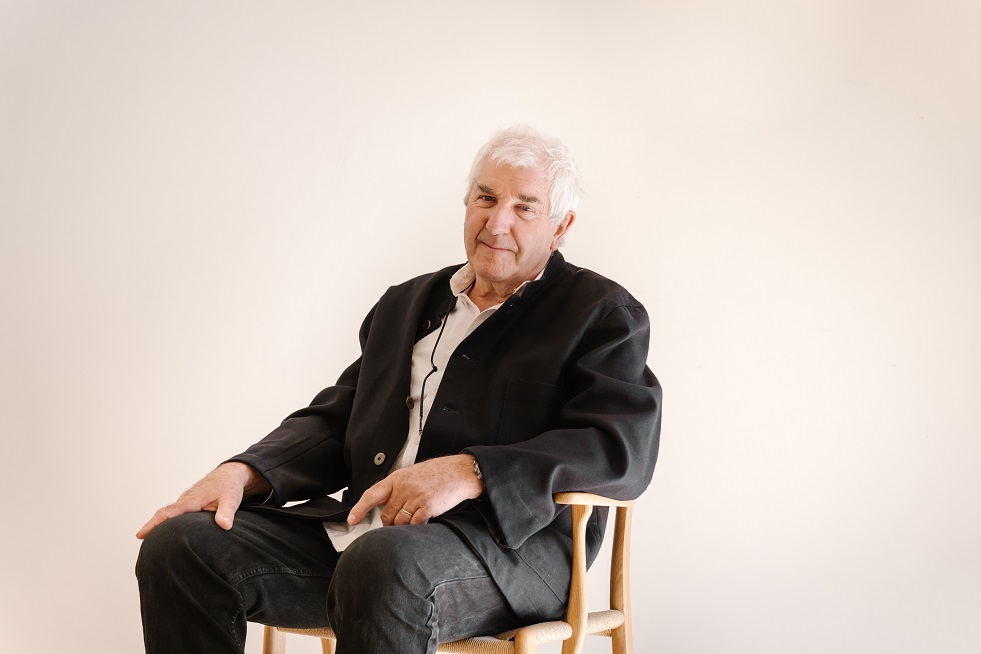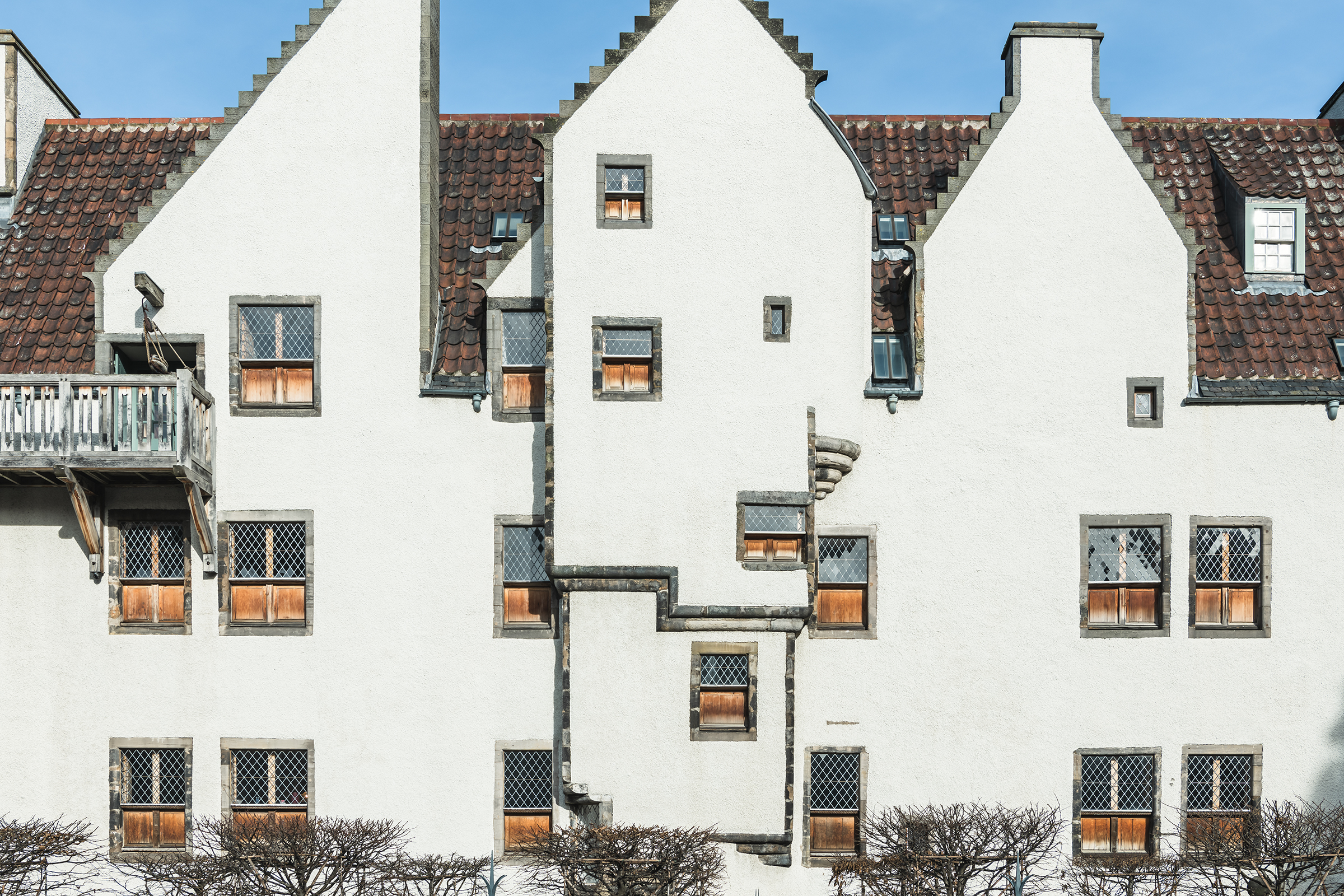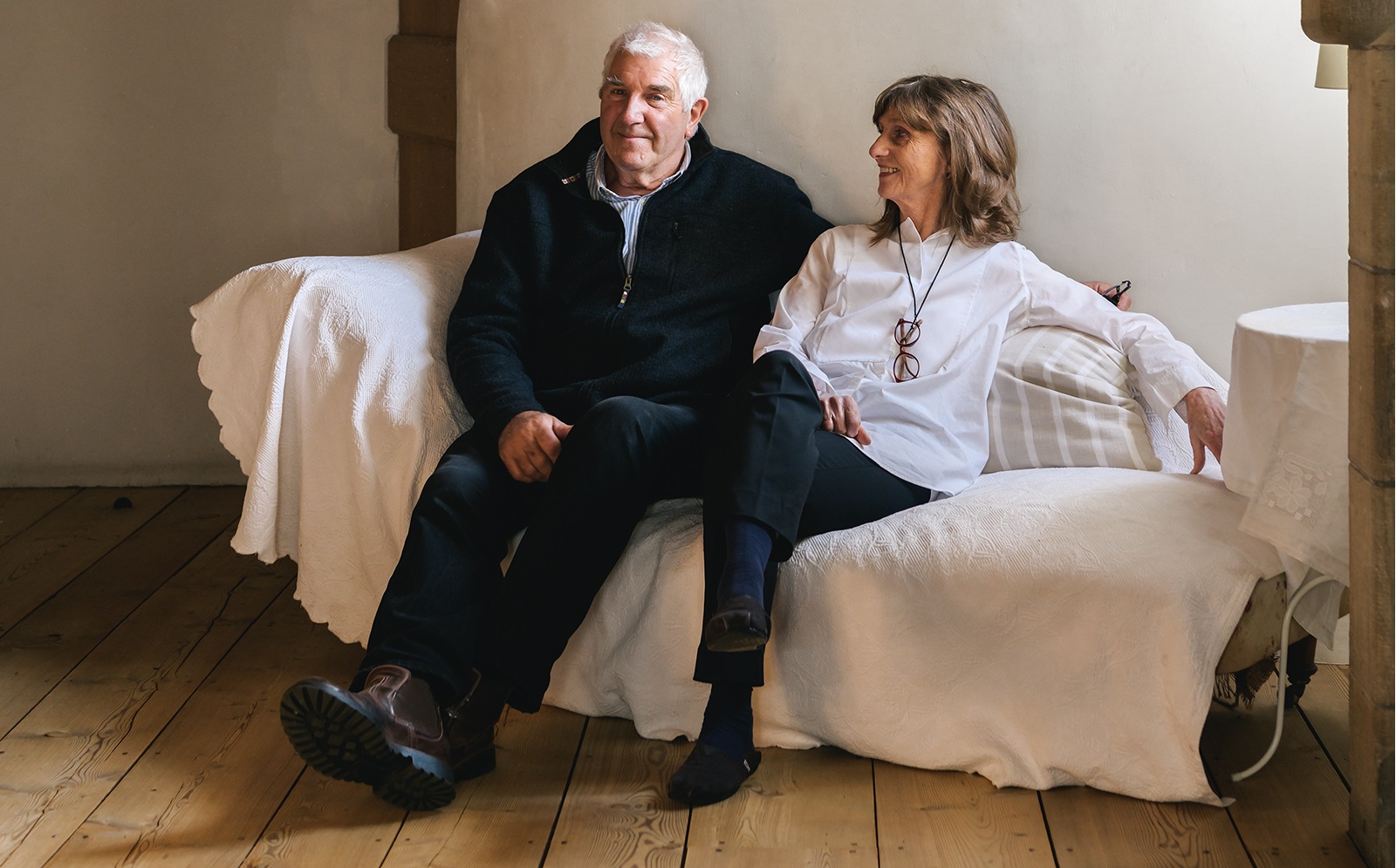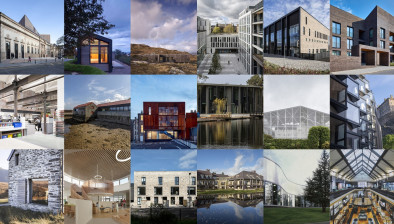Architect Nicholas Groves-Raines receives MBE and calls for removal of VAT on repairs to existing buildings

Nicholas Groves-Raines MBE (Photo by Murray Orr)
The contribution of one of Scotland’s leading architects has been recognised in this year’s Queen’s Birthday Honours list as Nicholas Groves-Raines is awarded an MBE for services to Architecture, Heritage and Conservation.
A co-director of Groves-Raines Architects Studios alongside his wife Kristín Hannesdóttir and son Gunnar, he has over 50 years’ experience in an extraordinary variety of conservation and development projects.
Born in 1940 in Bangor Co. Down, Nick spent his time as a student of Architecture at Edinburgh College of Art in the 1960s. This period was set against the backdrop of city and town centre clearances across Scotland and the UK. Historic buildings were demolished to make way for shopping centres and other new developments. Railing against the pervading culture of the time, Nick’s passion for preservation and restoration of existing buildings has fuelled a career which has seen him play an integral role in protecting Scotland’s historic built environment whilst also working on award winning architectural projects in Ireland and the UK.
Practices that are commonplace today, including a focus on sustainability and reducing the carbon footprint of developments, have been integral to Nick’s practice since the 1970s. In particular the concept of ‘embedded energy’ of existing buildings, which recognises the work and materials already contained within a building, has been a key to his practise’ approach to projects over many years.

Lambs House in Edinburgh (Photo by Elliot Sheppard)
Speaking on receipt of his MBE, the 82-year-old architect has called on the UK Government to abolish VAT on repair costs for existing buildings, allowing more of the heritage of buildings to be retained and repurposed.
He said: “A lot has changed since I began working as an architect. There was little appreciation within the profession for old buildings and the fabric of whole townscapes were destroyed in the ‘slum’ clearances of the 1960s and 1970s. As a young architect I wanted to push back against this. I was fired up to record a number of these buildings that have since been lost. In an effort to counter this wanton waste I determined to take on some development projects of my own at a time when architects weren’t allowed to take on developments. I resolved to acquire a number of threatened historic buildings, as it seemed the only way to save them.
“Today there is a greater appreciation for our historic buildings but despite this progress there is still much we can do to protect and restore our built environment. Sustainability in architecture has to start with the restoration of existing buildings. Keeping what we have and reusing it is one of the best ways to save carbon. The greatest impact on this would be to remove the 20% VAT rate that applies to repair on existing buildings.
“As a private individual taking on an old building, you are being hammered with an 20% additional cost on what is already a costly exercise. By removing VAT on repairs more people would be encouraged to restore existing buildings and breathe new life into the traditional/vernacular heritage across the country.”

Nicholas Groves-Raines and Kristin Hannesdottir (Photo by Elliot Sheppard)
Nick’s drive and determination to rescue historic buildings saw him take on developments risking his own money on numerous projects to save buildings neglected by city councils and preservation organisations. This included Robertson Close in Edinburgh, an early 18th Century tenement, that was marked for demolition by the City Council before Nick stepped in, bought it for the princely sum of £1.00 and refurbished it, creating seven flats. This project was subsequently listed by Historic Scotland.
Developments in deprived areas of Glasgow and Kilmarnock followed, earning the Practice and the development company Steinhus Ltd the affectionate denomination ‘The Department for Lost Causes’. The personal risk and entrepreneurship involved also saw Nick save a number of buildings which then became family homes as well as office spaces for the architectural practice. These included Moubray House, Peffermill House, Liberton House and Lambs House in Edinburgh as well as the Lees Stables in Coldstream and Edinample Castle in Perthshire.
Nick is a former trustee of the National Trust for Scotland and a former board member of the Queen’s Hall. Over the past few years, he has given his free time to various voluntary organisations, particularly in Leith, advising on conservation matters. In 2017 Nick was awarded the Lifetime Achievement Award of the Royal Incorporation of Architects in Scotland (RIAS), being described by the then President Stewart Henderson as ‘a saviour of historic buildings’.
Nick continues to work as a director of Groves-Raines Architects Studios (GRAS) and is currently involved with a number of refurbishment projects in Sutherland, Shetland and other parts of Scotland. These projects include old hunting lodges on behalf of Wildland Ltd. giving Nick the opportunity to reuse and repurpose existing buildings and introducing cutting edge contemporary interventions, whilst also working in the traditional vernacular style and where possible, restoring these buildings as they were originally built.














